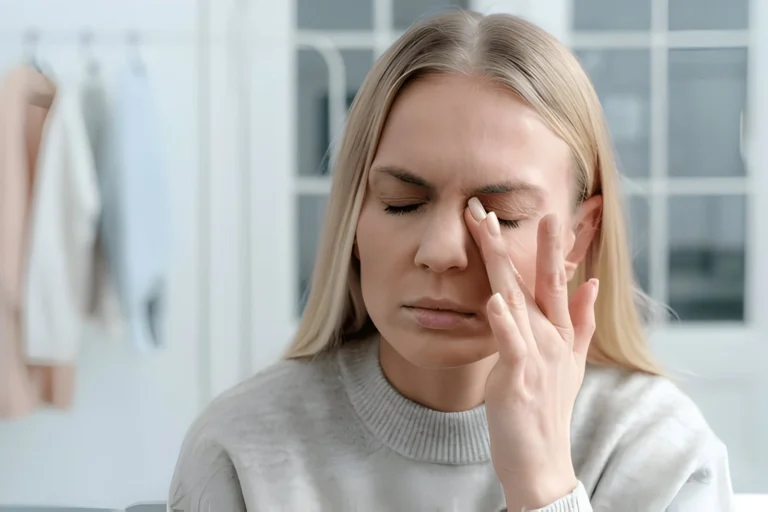Dry eyes are a common condition that occurs when your eyes are unable to produce enough tears or when the quality of your tears is poor. This can lead to discomfort, irritation, and sometimes even vision problems. Many people experience dry eyes at some point in their lives, and understanding the causes and symptoms is crucial for finding the best dry eye treatment and maintaining eye health.
In this article, we’ll explore the common triggers of dry eyes, and the symptoms associated with this condition. Additionally, we’ll highlight how dry eye treatment, including consultation with dry eye specialists, can provide relief.
Common Causes of Dry Eyes
- Environmental Factors
Environmental conditions are one of the most common causes of dry eyes. Factors like wind, dry air, smoke, and even air conditioning can reduce the amount of moisture in the eyes, leading to dryness and irritation. Those who live in arid climates or spend a lot of time outdoors in windy or smoky environments are particularly susceptible.
- Screen Time
The digital age has brought with it increased use of computers, smartphones, and tablets, often for prolonged periods. When we focus on screens for extended periods, we tend to blink less frequently, which reduces the amount of lubrication on the surface of the eye. This decreased blinking can contribute to dry eyes, especially if the habit is long-term. One way to combat this is through proper dry eye disease treatment prescribed by specialists.
- Aging
As we age, our body’s ability to produce tears naturally decreases. This is particularly true for women going through hormonal changes during menopause, as the production of both tears and oil in the eyes can be significantly reduced. Aging individuals are more likely to require dry eye disease treatment to maintain eye comfort and health.
- Medications
Several medications can contribute to dry eyes as a side effect. Common medications that may cause or exacerbate dry eye symptoms include antihistamines, decongestants, blood pressure medications, antidepressants, and even certain acne treatments. If you’re on any of these medications and experiencing dry eyes, you may want to discuss alternative treatments with your doctor or dry eye specialists.
- Medical Conditions
Underlying medical conditions like diabetes, rheumatoid arthritis, lupus, and thyroid disorders can also cause dry eyes. These conditions may impact the quality or quantity of tears produced, and proper dry eye disease treatment becomes essential in managing the condition. Treating these diseases may involve specialized care, with a focus on eye health.
- Contact Lenses
Contact lens wearers are prone to experiencing dry eyes because lenses can absorb moisture from the eyes, leading to discomfort. Long-term contact lens use can cause or worsen dry eyes, and many opt for the best dry eye treatment to find relief. Switching to lenses designed for dry eyes or using rewetting drops can help.
- Eye Surgery
People who have undergone eye surgeries, such as LASIK, may experience dry eyes post-surgery. In some cases, the nerves that stimulate tear production can be affected during the procedure, leading to reduced tear production. Dry eye treatment post-surgery is often necessary to alleviate symptoms and support healing.
Symptoms of Dry Eyes
Dry eyes can cause a range of symptoms, varying from mild discomfort to more severe complications. The most common symptoms include:
- Stinging or burning sensation: One of the first signs of dry eyes is a persistent burning or stinging sensation in the eyes.
- Redness: Chronic irritation often leads to redness, making the eyes look inflamed.
- Grittiness or feeling of a foreign body in the eye: Many people describe the feeling as having sand or grit in their eyes, which can be incredibly uncomfortable.
- Blurred vision: In more severe cases, dry eyes can cause intermittent blurred vision as the tear film becomes unstable.
- Sensitivity to light: People with dry eyes often experience increased sensitivity to light, also known as photophobia.
- Watery eyes: While it may seem contradictory, they are a symptom of dry eyes. This occurs when the eyes respond to irritation by producing more tears, but these tears lack the necessary components to properly lubricate the eyes.
Dry eyes can be uncomfortable and disruptive but understanding the triggers and symptoms can help you seek the best dry eye treatment for your condition. Whether your dry eyes are caused by environmental factors, aging, or medical conditions, consulting with dry eye specialists can lead to effective relief and improved eye health. Don’t wait to address your symptoms—find the right dry eye disease treatment today and enjoy the comfort of well-lubricated, healthy eyes.
If you are in search of the best dry eye treatment in town, you are in the right place. At Shri Venkatesh Eye Institute, we understand the frustration of living with dry eyes and provide comprehensive care to help you find relief. Our teams of experts are skilled in diagnosing and providing dry eye disease treatment for patients with underlying health conditions that affect their tear production.
Our dry eye specialists will work with you to create a personalized treatment plan that enhances your eye comfort and overall well-being. Schedule a consultation today to start your journey towards healthier, more comfortable eyes.

